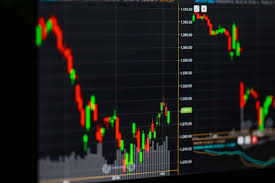
Understanding Forex Trading Licenses: A Guide for Traders
In the world of financial trading, particularly in the Forex market, having the right licensing can be a significant factor in the success and legality of your trading operations. A Forex trading license not only establishes your credibility among clients and investors but also ensures compliance with regulatory standards. For those looking to delve deeper into the trading world, the importance of obtaining a trading license cannot be understated. Many traders turn to platforms such as forex trading license trading-cambodia.com for resources and guidance in this complex area.
What is a Forex Trading License?
A Forex trading license is a legal requirement for Forex brokers and financial institutions that wish to operate within the jurisdiction of a regulatory authority. This license is issued by financial regulatory bodies in various countries and serves to govern the activities of Forex trading platforms, ensuring that they adhere to specific operational guidelines and standards. The purpose of licensing is to protect investors from fraud and to ensure that trading practices are fair and transparent.
Why is a Forex Trading License Important?
The importance of holding a Forex trading license cannot be overstated. Here are several reasons why obtaining a license is crucial for Forex brokers and traders:
- Regulatory Compliance: Operating without a license can lead to severe penalties, including fines and the closure of your business. Regulatory bodies impose guidelines to ensure that brokers operate ethically.
- Investor Protection: A licensed broker is obligated to adhere to rules designed to protect investors. This includes the segregation of clients’ funds, ensuring that they are not used for operational costs.
- Market Credibility: A valid trading license builds trust with clients. Traders are more likely to trust a broker who is regulated and licensed, as it implies a level of competency and reliability.
- Access to Trading Solutions: Licensed brokers often have access to better trading technologies and solutions, which can enhance the trading experience for their clients.
- Global Reach: Some licenses allow brokers to operate in multiple countries, expanding their market potential and customer base.
Types of Forex Trading Licenses

There are several types of Forex trading licenses available worldwide, and they vary significantly depending on the jurisdiction. Here are a few of the most common licenses:
- License from the United Kingdom (FCA): The Financial Conduct Authority (FCA) is one of the most reputable financial regulators globally. Brokers licensed by the FCA are considered trustworthy due to the stringent compliance requirements set forth.
- License from Cyprus (CySEC): The Cyprus Securities and Exchange Commission (CySEC) is known for its relatively faster licensing process, attracting brokers looking to enter the EU market.
- License from the Seychelles (FSA): The Financial Services Authority in Seychelles offers a more lenient approach to licensing, making it a popular choice among new brokers.
- License from the British Virgin Islands (BVI): BVI offers a favorable tax environment, making it attractive for Forex brokers who want to establish a presence without heavy taxation.
- License from the United States (NFA): The National Futures Association (NFA) enforces strict regulations, ensuring that liquidity providers and Forex brokers comply with the law, thus ensuring the protection of investors.
Requirements for Obtaining a Forex Trading License
Though requirements can vary greatly among jurisdictions, there are some common prerequisites that most regulators demand for a Forex trading license:
- Minimum Capital Requirement: Depending on the jurisdiction, brokers are usually required to maintain a minimum capital, which acts as a safeguard in case of unforeseen circumstances.
- Background Checks: Regulatory bodies typically conduct thorough checks on the owners and key employees of the broker. This ensures that only individuals with a solid financial background and relevant industry experience are running trading operations.
- Business Plan: A comprehensive business plan detailing the broker’s operating model, trading strategies, and risk management policies is often required.
- Compliance Procedures: Brokers must showcase their ability to meet the compliance standards set by regulatory bodies, which includes anti-money laundering procedures and ensuring client fund protection.
- Technological Infrastructure: The regulatory authority may require the broker to demonstrate their trading platform’s capability, including the reliability and security of their systems.
How to Choose the Right Forex Trading License?
Choosing the right Forex trading license depends on several factors, including your target market, business model, and growth aspirations. Here are some considerations:
- Target Market: If you plan to cater to European clients, an FCA or CySEC license might be more suitable. Conversely, if you are targeting emerging markets, consider licenses from jurisdictions like Seychelles or BVI.
- Cost: Licensing fees can vary significantly depending on the regulatory body. Consider both the initial licensing cost and ongoing compliance fees.
- Regulatory Requirements: Assess whether you can meet the specific regulatory requirements of the jurisdiction. Some might have stricter requirements than others.
- Reputation: Look into the reputation of the regulatory authority. Strong regulatory bodies like the FCA enhance credibility, while lesser-known jurisdictions may not offer the same level of trust among investors.
- Operational Flexibility: Some licenses may impose restrictions on types of trading or leverage levels. Make sure the licensing regime aligns with your business goals.

Steps to Obtain a Forex Trading License
The process of obtaining a Forex trading license can be intricate and time-consuming. Here’s a general roadmap to guide you through:
- Research and Selection: Choose the jurisdiction that best suits your business needs and begin your research on the specific licensing requirements.
- Prepare Documentation: Gather all the necessary documents, including a business plan, outline of the technology to be used, and financial information.
- Submit Application: Once prepared, submit your application along with the required fees to the selected regulatory authority.
- Compliance Setup: Implement compliance processes and ensure you meet all requirements during the waiting period for your license approval.
- Receive and Maintain License: Upon approval, adhere to the ongoing requirements and maintain regulatory compliance to keep your license active.
Conclusion
Obtaining a Forex trading license is a critical step in establishing a reputable and compliant trading operation. While the journey can be challenging and varied depending on the jurisdiction, the benefits of having a valid trading license far outweigh the costs. Traders and brokers benefit from enhanced credibility, investor protection, and access to better market opportunities. By taking the necessary steps to secure a Forex trading license, you are not just protecting your business but also fostering a trustworthy trading environment.
Additional Resources
For further information on Forex trading licenses and regulations, consider consulting legal experts in financial law or visiting comprehensive resources such as industry websites and forums.





评论0